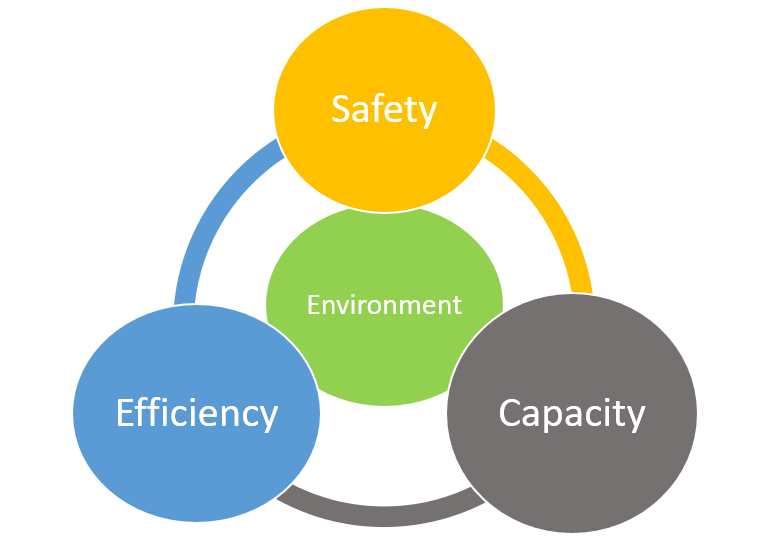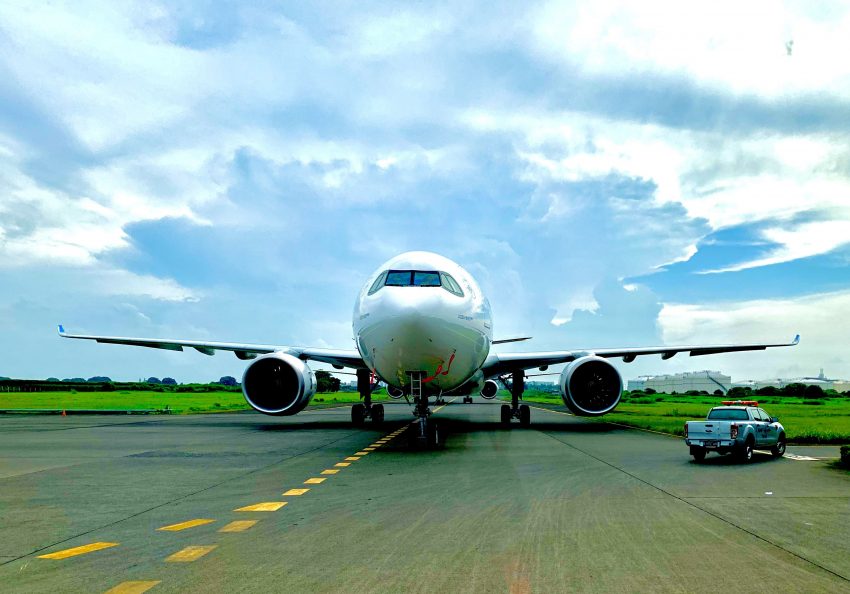Since the early days of flight, when the first powered craft of fabric and wood wrestled its way free from the clutches of gravity, aviation as an industry has grown strong and capable. We have become a major player in the global economy. We have learned to prize efficiency. We have made air travel the safest mode of public transport. We have leveraged the benefits of technology to increase capacity and we are growing our understanding of the importance of putting the environment at the centre of our thinking.

There is no doubt that the current pandemic represents the biggest challenge faced by commercial aviation since those early days. While the 2001 world trade centre attacks and the 70’s oil crisis were certainly significant, the recent widespread restrictions on global travel, have had far-reaching repercussions through all levels of our own industry.
Yet while the global economy is in crisis, the public are still looking beyond the immediacy of the pandemic. A recent report by the Pew Research Centre has identified that globally, and particularly across the European countries included in the study, climate change remains the top-most perceived threat, even as people there also express serious concern about the risks posed by infectious disease.
When the storm has passed
So, what will our industry look like when the pandemic storm has passed? It is unlikely to be business as usual. Most industry experts agree that in Australia, and many other countries, aviation will embark on domestic led recovery, followed by a slower return for the international segment.
The timing for this return, while unpredictable, is inevitable. Some market segments are already returning: In China, domestic aviation is nearing 95% of pre-pandemic levels. Others are still years away.
As the public focus slowly turns away from the pandemic, it is likely to return to the underlying and persistent nature of climate change.
What else can we do for the environment?
Recent studies have concluded that greenhouse gas emissions have fallen by as much as 8% in the March to June 2020 quarter, returning to levels not seen since 1991. Much of this is attributed to a reduction in transport. Passengers are the lifeblood of the aviation industry and they have noticed the change in our climate. In 2020, the bushfires in Australia, Brazil, and USA as well as the Arctic ice melts have galvanised many in the community to take action to reduce their impact on the environment, even as the pandemic garners the front page of our newspapers. In Australia, over 85% of Qantas Frequent Flyers believe that businesses play a key role in helping society manage our climate risk.
The aviation industry can incorporate sustainability into its DNA to meet these targets, while at the same time, realising the benefit of reduced fuel costs and a lower carbon footprint. Some airlines have already responded.
Qantas has committed to cap net C02 emissions at 2019 levels and reach net zero emissions by 2050. They have also committed $50 million over the next 10 years to the development of a sustainable aviation fuel industry in Australia and reduce 75% of their waste to landfill by end-2021 and remove 100 million single-use plastics from their operations by the end of 2020.
ANA Holdings in Japan have recently announced its environmental, social and governance goals, including a target to reduce CO2 emissions for its airline operations by 50% by 2050.
So where does this leave us?
Airlines and the aircraft are at the centre of our industry. Everything else, relies on aircraft being filled with fuel, passengers, and cargo, and flying. From air traffic controllers, aviation regulators, airport operators to parking attendants and maintenance staff, everyone needs airline customers. To attract customers to fill aircraft with people or cargo, we need an operation that is affordable and is attractive to a public becoming increasingly environmentally aware, more accustomed to virtual meetings, and with less disposable income.
Our industry will have to address this. The future viability of our industry relies on it.
Airlines are continually seeking ways to reduce cost: why not leverage the opportunity offered by the pandemic? The current reduction in the number of flights is an ideal opportunity to remove pre-existing capacity driven constraints on airline flight planning.
With fewer aircraft flying, there is less need to corral them closer together into fixed routes in order to separate them. Less congested airspace presents an opportunity to leverage new surveillance technologies and make “free flight” the normal, rather than the exception. It is also a good starting point in reducing emissions and fuel burn for flights of three hours duration or longer. For shorter duration flights, new satellite-based flight path and runway connected flight paths could be rapidly deployed to reduce emissions and fuel burn while at the same time increasing safety and predictability.
Sustainability
To70 has been working in the area of sustainable aviation since its inception. In the low-level airspace surrounding busy airports, we have recently been commissioned to demonstrate the performance of different aircraft Noise Abatement Departure Procedures (NADP1 and 2). This study has established a greater understanding of how the interaction between aircraft overflight noise and emissions can be balanced to bring targeted environmental benefits.
In the area of airspace design, our use of performance-based navigation standards has produced fuel efficient, low noise and emission flight path designs that are already meeting the challenges of future.
The key to a successful future for aviation is to look for new opportunities to enhance the performance of our industry in the areas of Safety, Capacity and Efficiency through a lens of Environmental sustainability.
About To70. To70 is one of the world’s leading aviation consultancies, founded in the Netherlands with offices in Europe, Australia, Asia, and Latin America. To70 believes that society’s growing demand for transport and mobility can be met in a safe, efficient, environmentally friendly and economically viable manner. To achieve this, policy and business decisions have to be based on objective information. With our diverse team of specialists and generalists to70 provides pragmatic solutions and expert advice, based on high-quality data-driven analyses. For more information, please refer to www.to70.com.

